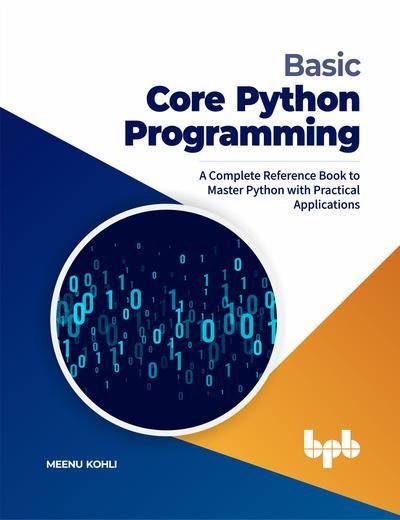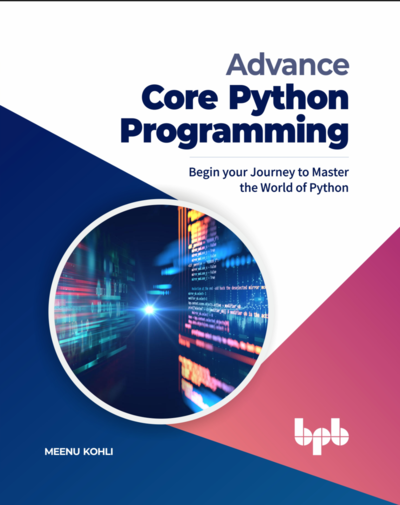5 Tips to Master Core Python Programming
Python is one language which has managed to grab attention of people from all walks of life after all it is a simple language that follows simple syntax. It is a safe option to start your coding journey 😊. Since Python is popular with the masses, it is quite obvious that you can get free access to endless topics through online videos, websites, courses, and books. I would imagine one would get overwhelmed just by looking at the copious resources available. With more resources comes more ambiguity, mostly regarding how to begin? and where to start from?
Before we jump to Where to Start from? Let’s take a slight detour and first answer the most important question in the Quest of Learning, and that question would be “How to Learn?”. We need to “Learn Smart” which means that you need to filter all the information available and tailor a learning plan as per your individual requirements. You do not need to go through each article or study material available. This will only lead to confusion and you will find yourself running around in circles without reaching anywhere. I have listed some simple, tried, and tested tips that I recommend to anyone who starts on the journey of Python Programming.
“Computer programming is all about logic implementation and problem-solving, it is a skill that you develop by following a well-defined strategy”.
#1 Define your Goal
You should be clear about what it is that you want to achieve? What is the thought that is driving you to pursue programming? To define your goal, it is important to have a vision. For e.g. If you are learning Python to get a job then here is something you need to know – we live in a world of competition and when it comes to coding-related jobs, every company aims to produce high-quality flawless software which can be created only by a team of highly efficient developers. If this is where you want to see yourself then you will have to aim to become an expert in this language which is possible provided you are willing to put in serious efforts. Just being familiar with the language is not enough you should aim at being at a level where you can take responsibilities and handle a coding task.
#2 Define a Roadmap
When a team decides to work on a project, the first step is to create a strategic plan that defines how the project can be broken into smaller segments that can be easily coded and then integrated back together to make the application work. Similarly, when you embark on the journey to learn to program you must try to break down your goal into simple achievable steps. Decide a time limit for yourself. Ideally, if you are planning to self-learn Python and willing to put in 2-3 hours of serious effort, you can learn the basics within a month’s time. I would recommend you dedicate 3 to 4 days to each chapter. On day 1 focus on understanding the concept, on day 2 try out all the examples provided in your learning resource, and on day 3 pick up random questions on the topic from various online resources and try to solve them.
#3 Right Learning Resource and Practise
Limit your learning resource to one or a maximum of two books or just one course. There are several books and courses available and you must look at what is best for your level. A beginner should not go for an advanced level book just because it has better reviews same way those who have some programming knowledge and are ready to get into action should not go for something basic. Students pursuing graduation in computer science should look for study material that gives equal importance to theory and coding, and a professional developer can just get started within no time, he/she will find a way. Remember, choice of learning resource plays a very important role so pick carefully!
Whether it is weight loss or coding, daily commitment is the key to success. Out of sight is out of mind. I am not going to tell you how much time you need to take out to learn to program, but my observation is that only passionate learners can give this kind of commitment. You must have the hunger to ace programming. Like I can spend my entire day coding if I had my way! It is addictive and if you really like programming, you will take out the time to practice. The daily practice and constant enthusiasm will definitely result in the euphoria of success. If you want to make a career in Python programming then you must take out time to work on your skills on daily basis.
To keep yourself motivated join Python study or developers’ groups on social media such as Facebook or Instagram. There are groups for Python beginners where coders from across the globe come together to help each other in resolving coding issues. Such groups give you a lot of exposure to how other people across the globe are learning Python. Daily updates from these groups will motivate you to keep working on your goal. You can help other people in solving problems and you can also seek help regarding technical issues that you are facing. The good thing about such groups is that you get the freedom to express your doubts freely without any hesitation.
#4 Keep Handy Key Rules
Every programming language has some rules and standards. You will also find some recommendations and best practices. As you proceed with the learning process you will learn new rules at every step. Note them down, prepare a chart and keep it at a place where you can easily view or reach them. You can also indulge in an artistic approach and save this chart as a desktop wallpaper. This will also give a meaningful look. You may refer to it whenever you encounter an error. The best option would be to register these rules in your mind that may just land you in your dream job!! (😊) On a serious note, always note down your mistakes along with the error generated and the resolution. This greatly improves your efficiency as a developer.
You will also come across some best practices. In my opinion, these are some rules that you may try to work around in order to appreciate them and understand why they exist in the first place. For example, the importance of giving a meaningful name to a variable. Try to write a code with random variable names. Go through your code after a gap of 5 days and you will realize that it makes no sense to you (hopefully!!). Best practices will your life easy. These rules are not mandatory, if not followed, no error will be generated but keep in mind that you must know why these recommendations are provided. All software development companies adhere to best coding practices.
Recommended Learning Resources from my side:

2. Advance Core Python Programming

#5 Look Beyond Books
Programming is all about thinking differently. From the very beginning, you must try to create something useful from whatever little you have learned. Do not limit yourself !! Expand your knowledge and capabilities beyond books and tutorials by experimenting. Like when you learn to work with operators you can grab your Maths or Physics books and look for some problem for which you can write a code. Experiment with every example given in the book and try to resolve it in a different manner or try to add more functionality to it. This is a very powerful technique of learning. The more you study the more “what ifs” should bother you. Programming is not a theoretical subject it is all about solving a problem by applying a logical approach. In the initial stages of learning, getting two numbers from the user as input and adding them, and displaying the sum looks like a great job, but you must look at how fast you can reach a stage where you can create a fully functional calculator.



